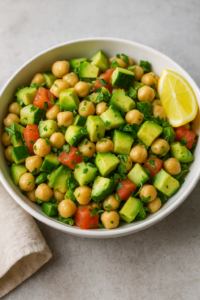
There are certain foods that should be limited if you have chronic kidney disease. There are also some foods you want to include in your diet that may help curve symptoms and possibly avoid dialysis. If you are already on dialysis, follow the eating plan provided by your physician. Before beginning any kind of kidney disease diet always check with your health care professional.
It can be a tricky process deciding what and how to eat properly with this disease. There are several types of foods that need to be eliminated or limited. However, you will also need to consume enough calories to keep up a decent energy level and stay healthy. A good healthy weight needs to be maintained as well. You do not want to lose too much weight as this will put you at a risk for other diseases or health issues.
WHEN DIABETES CAUSE STOMACH PROBLEMS
Good Energy Food for Diabetics
10 Simple Food Concepts Every Person Living With Diabetes Should Know
Making Cheesecake For Diabetics
Enjoy the Taste and Benefits of Diabetic Foods
Will The Mulberry Leaf Help Your Diabetes?
5 DIABETIC FRIENDLY SALADS Some Tasty
DIABETIC LEMON COCONUT COOKIES Some Tasty
50 Healthy Diabetic Recipes That Are The Best
Please remember to discuss your diet plans thoroughly with your health care professional. Also it would be advantageous to sit and talk with a nutritionist or dietitian to help plan healthy options while observing the kidney disease diet.
As a general rule, those suffering with chronic kidney disease need to limit their intake of the minerals potassium and phosphorus. Sodium and as well as protein will need to be consumed at lower levels and you'll want to monitor how much liquids you ingest.
About 5 to 7 ounces a day of high protein foods can be eaten. Protein is a tricky one as you will need enough to have energy and fight off disease; but too much can stress the kidneys. Being knowledgeable about how much protein different foods contain will help monitor it more closely.
Sodium retention can cause problems for a lot of people. If the kidneys are already in distress it will be difficult for them to keep up with too much salt in the body. They will have to work harder to get rid of excess sodium. Limiting sodium has other benefits as well, such as helping fight against fluid retention which is a common problem with this disease.
Another item to monitor closely when observing a kidney disease diet is fluid intake. Talk with your physician or dietitian to determine what amount of liquids is needed in a day. Careful monitoring will help you keep at the recommended amounts of fluids.
Check out these related articles, too:
Kidney Diet Secrets That Can Reverse Chronic Kidney Failure
What Is A Healthy Kidney Diet Plan
Diet Tips For People With Diabetes and Kidney Disease
Are Renal Insufficiency And Kidney Failure The Same Thing
5 Natural Supplements For Chronic Kidney Disease
Bitter Melon Recipe For Diabetes
Control Your Diabetes Better With These Helpful Tips
Gastroparesis - A Challenge to Control
Blood Sugar Control and Diet - A Plan to Reverse Diabetes
Diabetes Natural Home Remedies – Worth a Try?
Can Magnesium Prevent Diabetes?
Zinc Shown to Promote Insulin Production In Diabetics
Prevent Side Effects From Diabetes Drugs
Always check with your doctor before making any major changes to dieting habits or plans. Read labels closely to be familiar with included ingredients. Eating a healthy kidney disease diet can help avoid dialysis or further kidney damage.
Learn more about kidney disease symptoms [http://www.chronickidneydiseasesymptoms.com]. Stop by Jane Scott's site where you can find out all about kidney disease treatment [http://www.chronickidneydiseasesymptoms.com] and what it can do for you.
Article Source: http://EzineArticles.com/4629717



 Protected by Patchstack
Protected by Patchstack